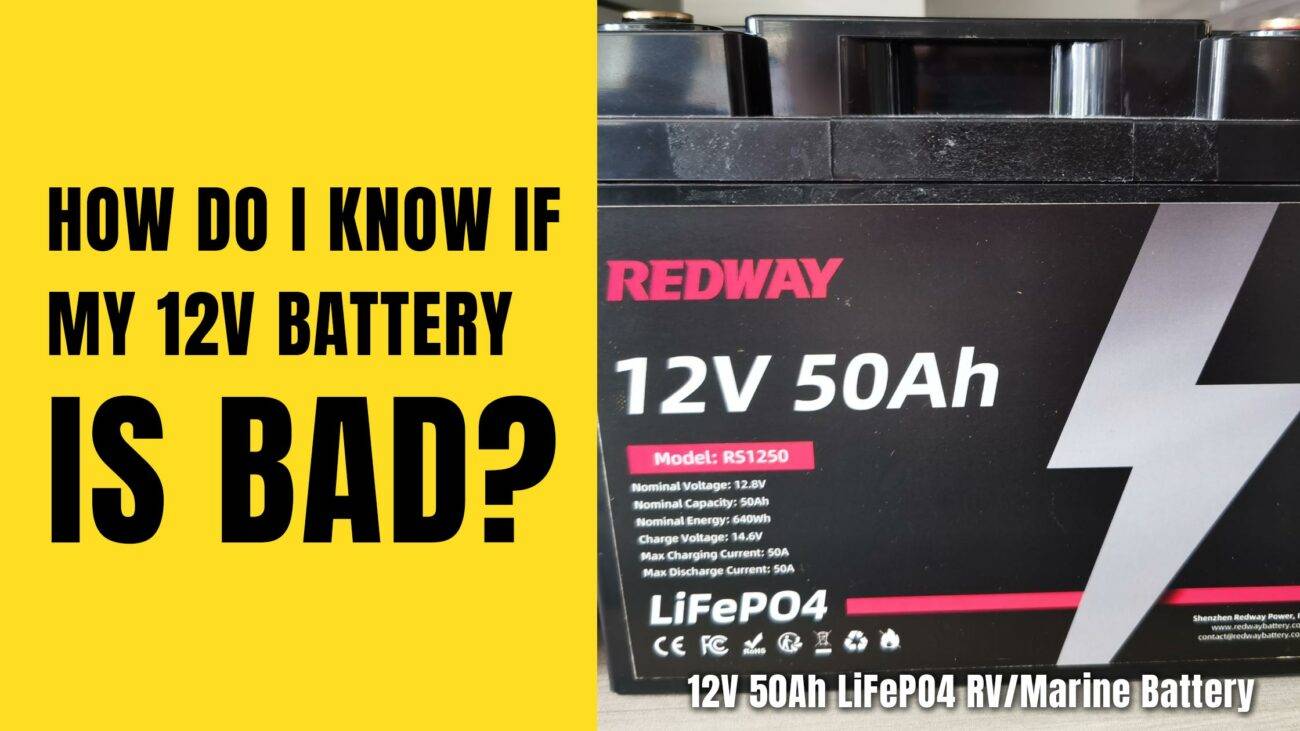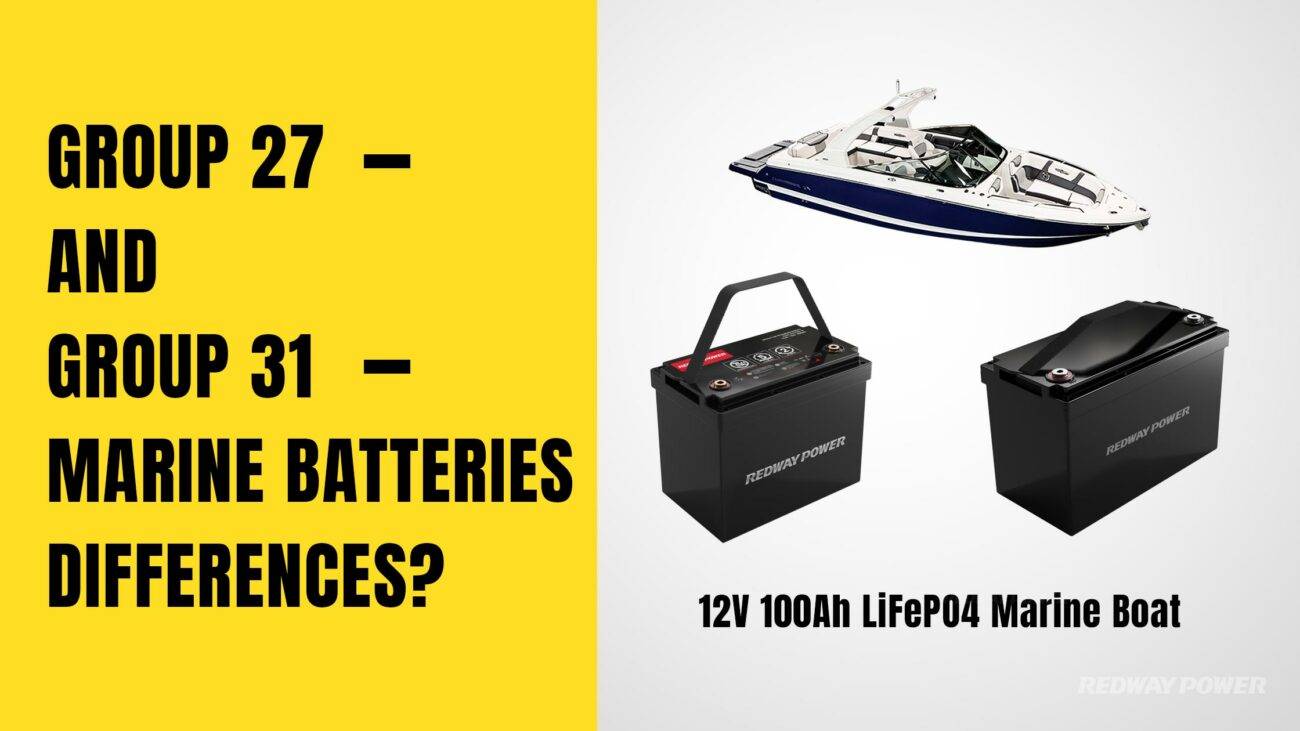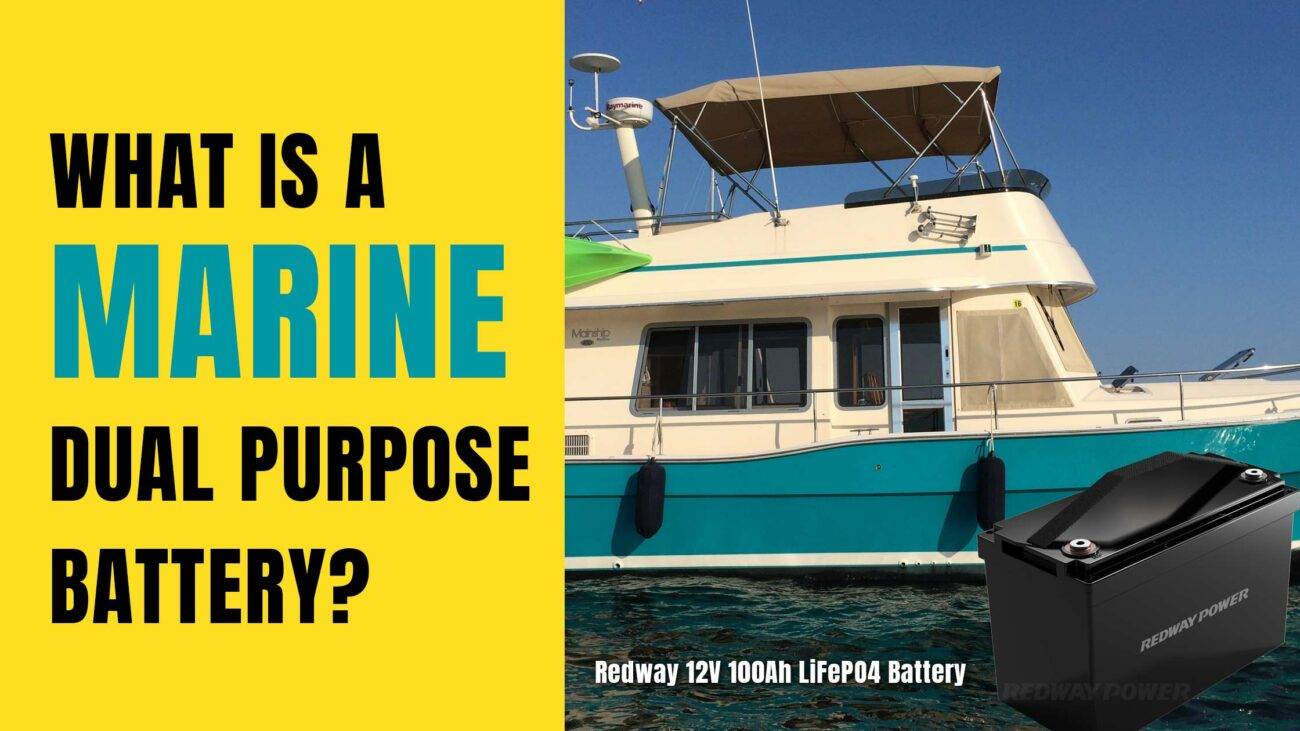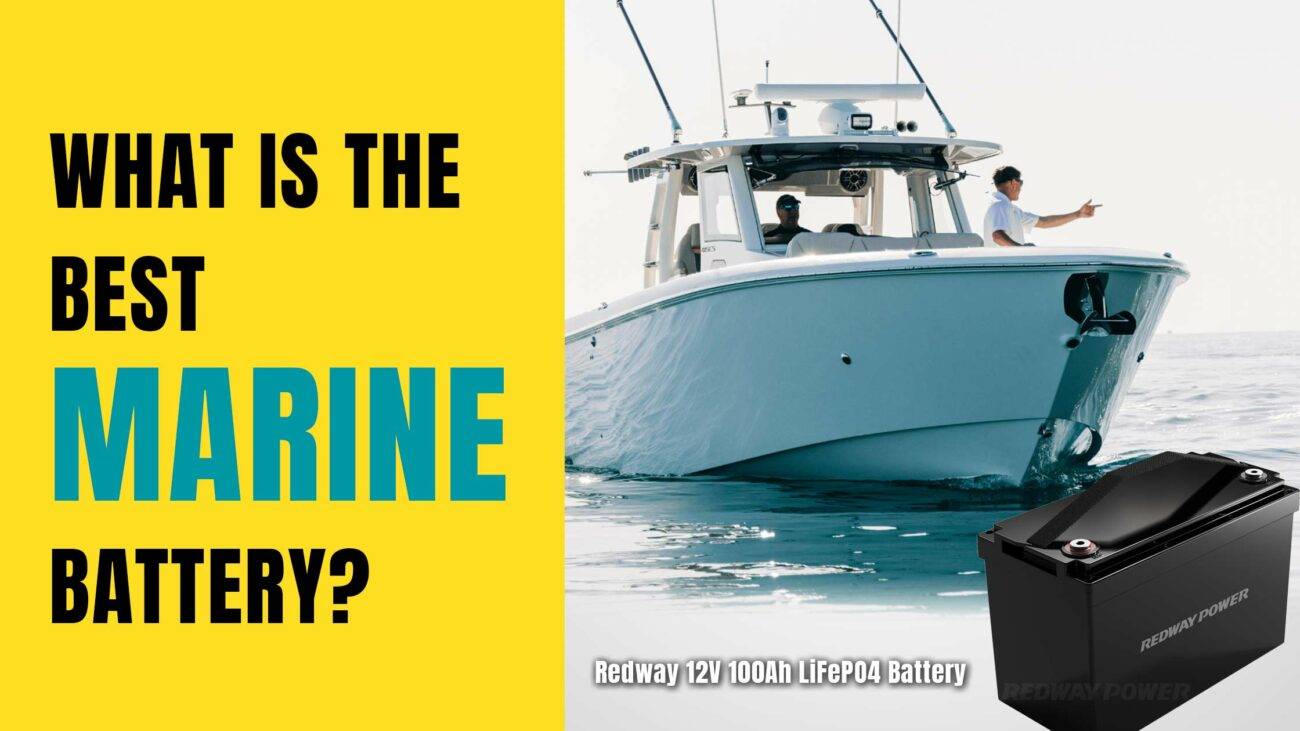
Blog
How Do Car Batteries Compare to Marine Batteries, and Can a Car Battery Be Used as a Marine Battery?
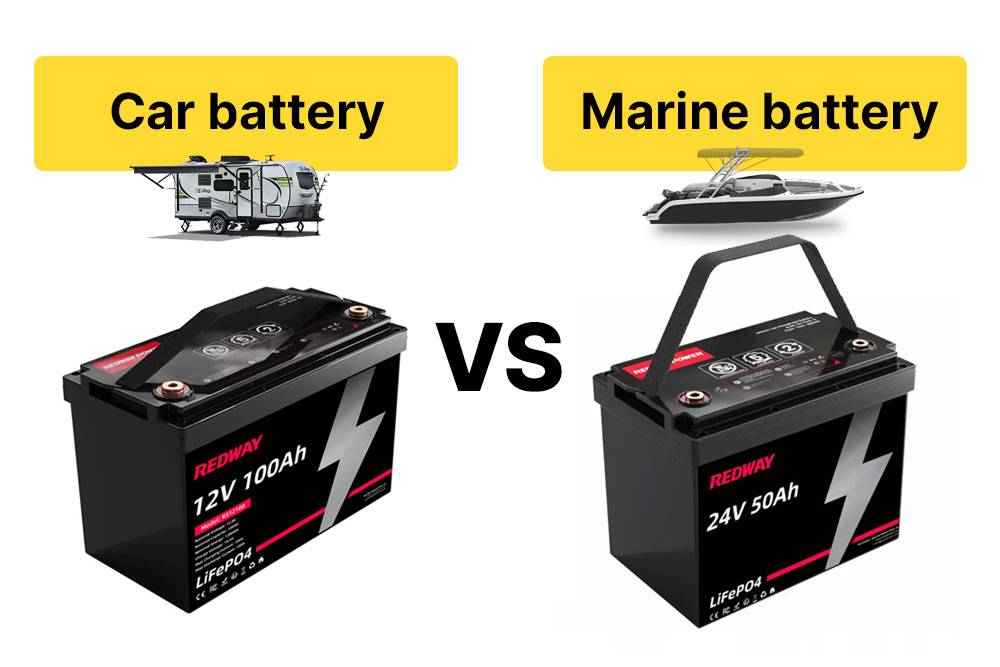
Car batteries and marine batteries differ primarily in design, construction, and intended use. While car batteries deliver short bursts of high current to start engines, marine batteries provide sustained power for longer periods to run boat motors and onboard electronics. Using a car battery as a marine battery is generally not recommended due to differences in durability, discharge cycles, and environmental resilience. Redway Power’s advanced lithium battery solutions overcome these challenges by offering superior performance tailored to each application.
What are the key structural differences between car batteries and marine batteries?
Marine batteries are built with thicker lead plates and reinforced designs to resist corrosion, vibrations, and shocks common in marine environments. They feature sealed or heavy-duty casings to manage exposure to moisture and rough movement on water. In contrast, car batteries focus on providing short, powerful bursts of energy to start engines, using thinner plates optimized for high cold cranking amps but less suited to sustained use.
How do performance requirements differ between car and marine batteries?
Car batteries are engineered to supply a high burst of current—measured by Cold Cranking Amps (CCA)—to reliably start engines quickly. Marine batteries, especially deep-cycle types, are designed to deliver continuous, stable power over extended durations to run boat accessories and propulsion. This means marine batteries can withstand deep discharges up to 80% or more without damage, whereas car batteries typically handle shallow discharge cycles.
Can a car battery effectively replace a marine battery?
While a car battery may temporarily start a boat engine, it is not engineered to supply sustained power for marine electronics or withstand the marine environment’s mechanical stresses. Using a car battery in place of a marine battery often results in premature battery failure, reduced performance, and potential safety risks due to insufficient deep cycling capacity and vibration resistance.
What are the advantages of marine batteries in boating applications?
Marine batteries offer higher reserve capacity, enabling longer operation between charges, critical for powering navigation systems, lights, pumps, and other onboard equipment. They resist corrosion better and last longer under constant vibration and wet conditions. Dual-purpose marine batteries combine starting and deep cycling capabilities, making them versatile for various boat types.
How do car batteries perform in cold weather compared to marine batteries?
Car batteries generally have higher CCA ratings, providing stronger engine starting power in cold temperatures, a necessity for vehicles in winter climates. Marine batteries prioritize sustained power over quick starts and thus have lower CCA, which is acceptable as boats often start in more moderate temperatures and require longer electrical support.
What maintenance considerations differentiate car and marine batteries?
Marine batteries often demand more careful maintenance, including regular recharging after deep discharges and inspection for corrosion due to moisture exposure. Car batteries generally recharge quickly via the alternator and are less frequently deeply discharged. Sealed AGM marine batteries reduce maintenance needs but still benefit from preventive care against harsh conditions.
How do battery lifespans compare in car versus marine uses?
Marine batteries, especially deep-cycle types, are designed for longer cycle lives—typically 3 to 5 times that of regular car batteries—because they handle repetitive deep discharges. Car batteries sustain many shallow cycles but degrade rapidly if deeply discharged, shortening their effective service life.
Are there any safety risks in substituting car batteries for marine batteries?
Improper use of car batteries in marine settings can lead to overheating, leakage, poor performance, and even battery damage due to mechanical stresses and insufficient discharge tolerance. Marine batteries’ rugged construction and specialized design elements mitigate these risks, enhancing safe boat operation.
Chart: Key Differences Between Car and Marine Batteries
| Feature | Car Battery | Marine Battery |
|---|---|---|
| Primary Use | Engine starting | Engine starting and deep cycling, powering accessories |
| Plate Thickness | Thinner | Thicker for durability |
| Cold Cranking Amps (CCA) | Higher for quick starts | Lower; prioritizes longevity |
| Deep Cycling Capacity | Low (shallow discharge only) | High (tolerates deep discharge) |
| Vibration Resistance | Moderate | High for marine environments |
| Environmental Sealing | Basic | Enhanced sealing, corrosion resistant |
| Reserve Capacity | Lower | Higher for sustained power |
| Lifespan (cycles) | 500-1,000 | 1,500-3,000+ |
Chart: When to Use Car vs Marine Batteries
| Application | Recommended Battery Type | Reason |
|---|---|---|
| Vehicle engine starting | Car battery | High CCA for cold starts |
| Recreational boat with accessories | Marine battery | Long-lasting, deep cycling, vibration resistant |
| Emergency backup for boat | Marine or dual-purpose battery | Sustained and reliable power |
| Temporary boat engine start | Car battery (short-term) | Possible, but not recommended long-term |
Redway Power Expert Views
“Car and marine batteries serve distinct roles with divergent design priorities. Marine batteries must endure harsh, wet, and vibrating conditions while providing steady power over long durations. Car batteries focus on delivering brief, intense energy bursts for engine starts. At Redway Power, we excel in crafting lithium battery packs that meet the rigorous demands of both automotive and marine applications, ensuring optimized performance, durability, and safety through advanced materials and intelligent battery management systems.” — Expert, Redway Power
Conclusion
Car batteries and marine batteries differ fundamentally in their construction, performance characteristics, and environmental resilience. Although car batteries excel at delivering quick bursts to start engines, they lack the durability, deep cycle capability, and safety features essential for marine use. Substituting car batteries for marine applications can lead to premature failure and safety concerns. For best results and longevity, use marine-specific batteries or advanced lithium alternatives from trusted manufacturers like Redway Power, who tailor battery solutions for diverse vehicle and marine power environments.
FAQs
Q: Can I use a car battery to start my boat engine?
A: A car battery may start the engine temporarily, but it is not designed for sustained marine power needs and may fail prematurely.
Q: What type of marine battery is best for running onboard electronics?
A: Deep-cycle or dual-purpose marine batteries designed for prolonged discharge are ideal for powering boat accessories.
Q: How often should marine batteries be maintained compared to car batteries?
A: Marine batteries generally require more frequent maintenance due to harsher conditions and deep cycling demands.
Q: Are AGM batteries suitable for both car and marine use?
A: AGM batteries are available for both applications but are specially designed and rated differently depending on the specific use.
Q: How does Redway Power improve battery durability for marine and automotive uses?
A: Redway Power employs advanced lithium technology, precision manufacturing, and intelligent battery management systems to enhance battery life, safety, and performance across applications.








